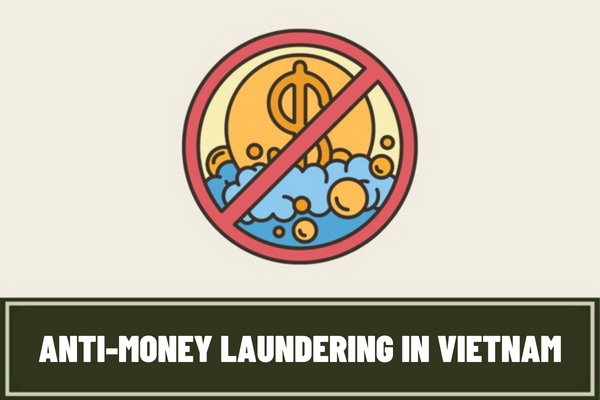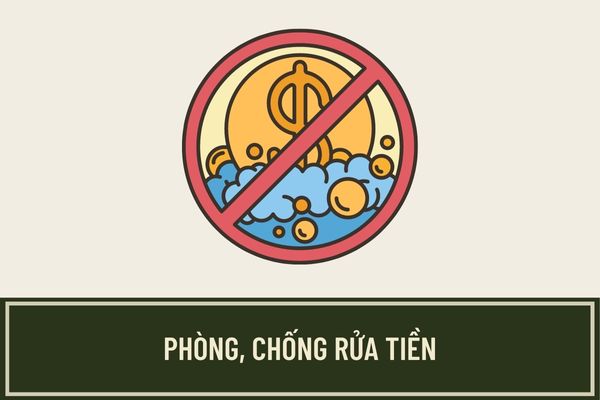Vietnam: What are the responsibilities of the People's Procuracies, the People's Courts and the People's Committees in anti-money laundering?
- What are the responsibilities of the People’s Procuracies in anti-money laundering in Vietnam?
- What are the responsibilities of the People's Courts in anti-money laundering in Vietnam?
- What are the responsibilities of People's Committees at all levels in anti-money laundering in Vietnam?
- What are the anti-money laundering principles?
What are the responsibilities of the People’s Procuracies in anti-money laundering in Vietnam?
Pursuant to Article 60 of the 2022 Law on Anti-Money Laundering in Vietnam, the responsibilities of the People's Procuracy in anti-money laundering are as follows:
- The People's Procuracies shall, within the range of their functions, tasks and powers, promptly and strictly handle money laundering acts; cooperate with relevant entities and institutions in combating money laundering.
- The Supreme People's Procuracy shall, within the range of its functions and tasks, bear responsibility for international cooperation in mutual legal assistance in criminal matters; promptly handle, process and request mutual legal assistance in criminal matters in the prevention and combat of money laundering.
- The Supreme People’s Procuracy shall cooperate with the State Bank of Vietnam and Ministries or central authorities concerned in conducting the national money-laundering risk assessment and update as specified in clause 1 and 2 of Article 7 in the 2022 Law on Anti-Money Laundering in Vietnam.

Vietnam: What are the responsibilities of the People's Procuracies, the People's Courts and the People's Committees in anti-money laundering?
What are the responsibilities of the People's Courts in anti-money laundering in Vietnam?
Pursuant to Article 61 of the 2022 Law on Anti-Money Laundering in Vietnam stipulating as follows:
Responsibilities of the People’s Courts
1. The People's Courts shall, within the range of their functions, tasks and powers, promptly and strictly handle money laundering acts; cooperate with relevant entities and institutions in combating money laundering.
2. The Supreme People's Court shall, within the range of its functions and tasks, bear responsibility for international cooperation in mutual legal assistance in money laundering.
3. The Supreme People’s Court shall cooperate with the State Bank of Vietnam and Ministries or central authorities concerned in conducting the national money-laundering risk assessment and update as specified in clause 1 and 2 of Article 7 in this Law.
Thus, the People's Courts shall, within the range of their functions, tasks and powers, promptly and strictly handle money laundering acts; cooperate with relevant entities and institutions in combating money laundering.
- The Supreme People's Court shall, within the range of its functions and tasks, bear responsibility for international cooperation in mutual legal assistance in money laundering.
- The Supreme People’s Court shall cooperate with the State Bank of Vietnam and Ministries or central authorities concerned in conducting the national money-laundering risk assessment and update as specified in clause 1 and 2 of Article 7 in the 2022 Law on Anti-Money Laundering in Vietnam.
What are the responsibilities of People's Committees at all levels in anti-money laundering in Vietnam?
Pursuant to Article 62 of the 2022 Law on Anti-Money Laundering in Vietnam stipulating as follows:
Responsibilities of the People’s Committees at all levels
1. Disseminate and provide education about the law on prevention and combat of money laundering in local areas under their jurisdiction.
2. Cooperate with competent state agencies in implementing and promoting the implementation of AML plans, conducting the national assessment of risks of money laundering.
3. Detect, promptly and strictly handle violations against law on money laundering prevention and combat according to respective competence.
Thus, the responsibilities of People's Committees at all levels in anti-money laundering are:
- Disseminate and provide education about the law on prevention and combat of money laundering in local areas under their jurisdiction.
- Cooperate with competent state agencies in implementing and promoting the implementation of anti-money laundering plans, conducting the national assessment of risks of money laundering.
- Detect, promptly and strictly handle violations against law on money laundering prevention and combat according to respective competence.
What are the anti-money laundering principles?
Pursuant to Article 5 of the 2022 Law on Anti-Money Laundering in Vietnam, the anti-money laundering principles are as follows:
Anti-money laundering principles
1. Prevention and combat of money laundering shall be conducted under the regulatory provisions of law on condition that sovereignty and territorial integrity, national security and interests are not prejudiced; the normal conduct of economic and investment activities is not interrupted; the legitimate rights and interests of legal or natural persons are protected; abusing public powers or anti-money laundering activities to infringe upon the legitimate rights and interests of a natural or legal person concerned.
2. All acts of money laundering shall be legally sanctioned.
3. Anti-money laundering countermeasures shall be taken in a timely and consistent manner.
Thus, anti-money laundering must comply with the following principles:
- Prevention and combat of money laundering shall be conducted under the regulatory provisions of law on condition that sovereignty and territorial integrity, national security and interests are not prejudiced; the normal conduct of economic and investment activities is not interrupted; the legitimate rights and interests of legal or natural persons are protected; abusing public powers or anti-money laundering activities to infringe upon the legitimate rights and interests of a natural or legal person concerned.
- All acts of money laundering shall be legally sanctioned.
- Anti-money laundering countermeasures shall be taken in a timely and consistent manner.
LawNet
